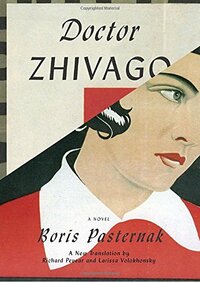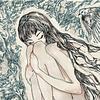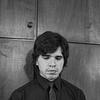You need to sign in or sign up before continuing.
Take a photo of a barcode or cover
informative
reflective
sad
medium-paced
Plot or Character Driven:
A mix
Strong character development:
Yes
Loveable characters:
Complicated
Diverse cast of characters:
Yes
Flaws of characters a main focus:
Yes
challenging
dark
reflective
sad
medium-paced
Plot or Character Driven:
A mix
Strong character development:
Complicated
Loveable characters:
No
Diverse cast of characters:
No
Flaws of characters a main focus:
No
There's a lot of context that I needed to know about Russia during this time. It was readable just difficult to follow.
I am not enjoying this or have an urge to pick this up. DNFing after a mere 30 pages. I've read a lot of Russian Lit, but even I'm struggling to keep up with all the characters. Feels like a lot of characters are introduced at the beginning. I'm also just not that interested in what has happened so far.
I found this book interesting, but very hard to follow because of the foreign names and all of the characters. I also thought that there was a lot of "telling" in the story and not a lot of "showing," making the characters seem artificial. I felt that the plot was good, but could have been more developed and extrapolated on. There was a lot philosophical discussion and poetry, which was ok at times, but I thought deterred from the main story line and was more for a philosophical political text rather than a fictional story.
dark
emotional
mysterious
reflective
slow-paced
Plot or Character Driven:
Character
Strong character development:
Complicated
Loveable characters:
No
Diverse cast of characters:
No
Flaws of characters a main focus:
Yes
adventurous
dark
emotional
inspiring
reflective
medium-paced
Plot or Character Driven:
Character
Strong character development:
Yes
Loveable characters:
Yes
Diverse cast of characters:
Yes
Flaws of characters a main focus:
Yes
challenging
mysterious
reflective
sad
slow-paced
Plot or Character Driven:
Character
Strong character development:
Yes
Loveable characters:
Yes
Diverse cast of characters:
Yes
Flaws of characters a main focus:
Yes
Like the great majority, I started watching the David Lean’s film first instead of the novel, too many years ago. The movie lasted three hours, it was set in the chaotic and violent times of revolutionary Russia and the story itself was complex because of its network of relationships between the different characters and the magnitude of the historical events that it was intended to reflect, but I couldn’t forget the passionate and tragic story of Yuri and Lara anyway, or the hypnotic images of the Russian steppes and the portentous visual machinery, like any other David Lean’s superproduction. The film was spellbinding and it left me a bittersweet taste, in short, I loved it from the beginning to the end and I knew that sooner or later I’d read the novel in which the film was based.
I must say that cinema has its limits when it comes about the adaptation of a novel, especially a novel like Pasternak’s. Cinema shows the actions and the context in which they occur simultaneously and the camera tells the story with concrete images and sounds in an inexorable way, without appealing to the spectator’s richness of imagination (in most cases), not as literature does because of its abstract nature. It’s true that cinema has more material of expression such as images, music, sounds and words itself, but in spite of its superiority in terms of expressive vehicles, there are places where the extensive domain of cinema doesn’t reach and is where the beauty and uniqueness of literature begins. If I hadn’t seen the movie, it would have seemed crazy to me to turn this book into a film, a book of almost 600 pages of forbidden and doomed love, of stoicism and survival, of despair and misfortunes, of individual odysseys driven by the ineluctable winds of history. All written with a caustically honest, insightful, mournful and poetic prose of a brilliant writer who had lost his faith in the revolutionary cause of his country. It’s hard to translate that into a cinematic language.
It’s understandable why he won the Nobel Prize because of this novel rather than his career as a poet. When it was published in Italy it generated a resounding commotion in all Europe and the Soviet Union. Pasternak had put his life in danger, he was expelled from the Union of Soviet Writers and was constantly threatened and pressured by the government. It's not just a romantic and tragic story of adultery as the film highlights it, is a story that reflects the profound disillusion of its author, a story of the revolution’s lost ideals and the wrong direction it took, drastically changing the lives of those affected by the red storm. And yes, is daring and brave as hell considering the great machinery of censorship and the mercilessly political persecution practiced by the soviets.
In the novel you’ll find sharp and subtle observations that contradict the totalitarian system erected by the USSR and the bloodshed and chaos that it brought between compatriots. Pasternak wrote:
I tend to agree with those who say that the story and the characters are dilute in long reflections and discourses in many occasions. It has many indefinable characters that are forgotten immediately after their appearance and their voices are indistinguishable, as if they were mere puppets of Pasternak’s great loquacity. The grandiloquent dialogues between Yuri, Lara or Pasha, for instance, seem the fruit of the same thought and vision of the world, the author’s. The literary devices are evidenced by those discursive threads, affecting the verisimilitude of the story. Bur I don’t see that as something negative or doesn’t make the novel less enjoyable from my point of view. It’s just a different approach in the art of telling a story and the expectations that the novel should obey certain credibility coordinates is to close oneself out of a world of possibilities.
I think he had the imperative need to write this novel to leave a sensitive and courageous testimony of the traumatic times that he had to live. And I also think that we shouldn’t reduce the novel to the forbidden and tortuous relationship of Yuri and Lara, nor to the subtle and sharp criticism of the Soviet Union that underlies in it. It has so many beautiful and vivid descriptions, observations, insights or monologues about life, art, nature, war or love that are pure gold. I can understand that the characters or the story don’t seem quite convincing, but I believe that the novel is worth reading only for incredible passages such as this one:
I must say that cinema has its limits when it comes about the adaptation of a novel, especially a novel like Pasternak’s. Cinema shows the actions and the context in which they occur simultaneously and the camera tells the story with concrete images and sounds in an inexorable way, without appealing to the spectator’s richness of imagination (in most cases), not as literature does because of its abstract nature. It’s true that cinema has more material of expression such as images, music, sounds and words itself, but in spite of its superiority in terms of expressive vehicles, there are places where the extensive domain of cinema doesn’t reach and is where the beauty and uniqueness of literature begins. If I hadn’t seen the movie, it would have seemed crazy to me to turn this book into a film, a book of almost 600 pages of forbidden and doomed love, of stoicism and survival, of despair and misfortunes, of individual odysseys driven by the ineluctable winds of history. All written with a caustically honest, insightful, mournful and poetic prose of a brilliant writer who had lost his faith in the revolutionary cause of his country. It’s hard to translate that into a cinematic language.
It’s understandable why he won the Nobel Prize because of this novel rather than his career as a poet. When it was published in Italy it generated a resounding commotion in all Europe and the Soviet Union. Pasternak had put his life in danger, he was expelled from the Union of Soviet Writers and was constantly threatened and pressured by the government. It's not just a romantic and tragic story of adultery as the film highlights it, is a story that reflects the profound disillusion of its author, a story of the revolution’s lost ideals and the wrong direction it took, drastically changing the lives of those affected by the red storm. And yes, is daring and brave as hell considering the great machinery of censorship and the mercilessly political persecution practiced by the soviets.
In the novel you’ll find sharp and subtle observations that contradict the totalitarian system erected by the USSR and the bloodshed and chaos that it brought between compatriots. Pasternak wrote:
“Everything had changed suddenly--the tone, the moral climate; you didn't know what to think, whom to listen to. As if all your life you had been led by the hand like a small child and suddenly you were on your own, you had to learn to walk by yourself. There was no one around, neither family nor people whose judgment you respected. At such a time you felt the need of committing yourself to something absolute--life or truth or beauty--of being ruled by it in place of the man-made rules that had been discarded. You needed to surrender to some such ultimate purpose more fully, more unreservedly than you had ever done in the old familiar, peaceful days, in the old life that was now abolished and gone for good."
I tend to agree with those who say that the story and the characters are dilute in long reflections and discourses in many occasions. It has many indefinable characters that are forgotten immediately after their appearance and their voices are indistinguishable, as if they were mere puppets of Pasternak’s great loquacity. The grandiloquent dialogues between Yuri, Lara or Pasha, for instance, seem the fruit of the same thought and vision of the world, the author’s. The literary devices are evidenced by those discursive threads, affecting the verisimilitude of the story. Bur I don’t see that as something negative or doesn’t make the novel less enjoyable from my point of view. It’s just a different approach in the art of telling a story and the expectations that the novel should obey certain credibility coordinates is to close oneself out of a world of possibilities.
I think he had the imperative need to write this novel to leave a sensitive and courageous testimony of the traumatic times that he had to live. And I also think that we shouldn’t reduce the novel to the forbidden and tortuous relationship of Yuri and Lara, nor to the subtle and sharp criticism of the Soviet Union that underlies in it. It has so many beautiful and vivid descriptions, observations, insights or monologues about life, art, nature, war or love that are pure gold. I can understand that the characters or the story don’t seem quite convincing, but I believe that the novel is worth reading only for incredible passages such as this one:
“Reshaping life! People who can say that have never understood a thing about life—they have never felt its breath, its heartbeat—however much they have seen or done. They look on it as a lump of raw material that needs to be processed by them, to be ennobled by their touch. But life is never a material, a substance to be molded. If you want to know, life is the principle of self-renewal, it is constantly renewing and remaking and changing and transfiguring itself, it is infinitely beyond your or my obtuse theories about it.”
dark
sad
slow-paced
Plot or Character Driven:
Character
Strong character development:
Yes
Loveable characters:
Yes
Diverse cast of characters:
No
Flaws of characters a main focus:
Complicated




